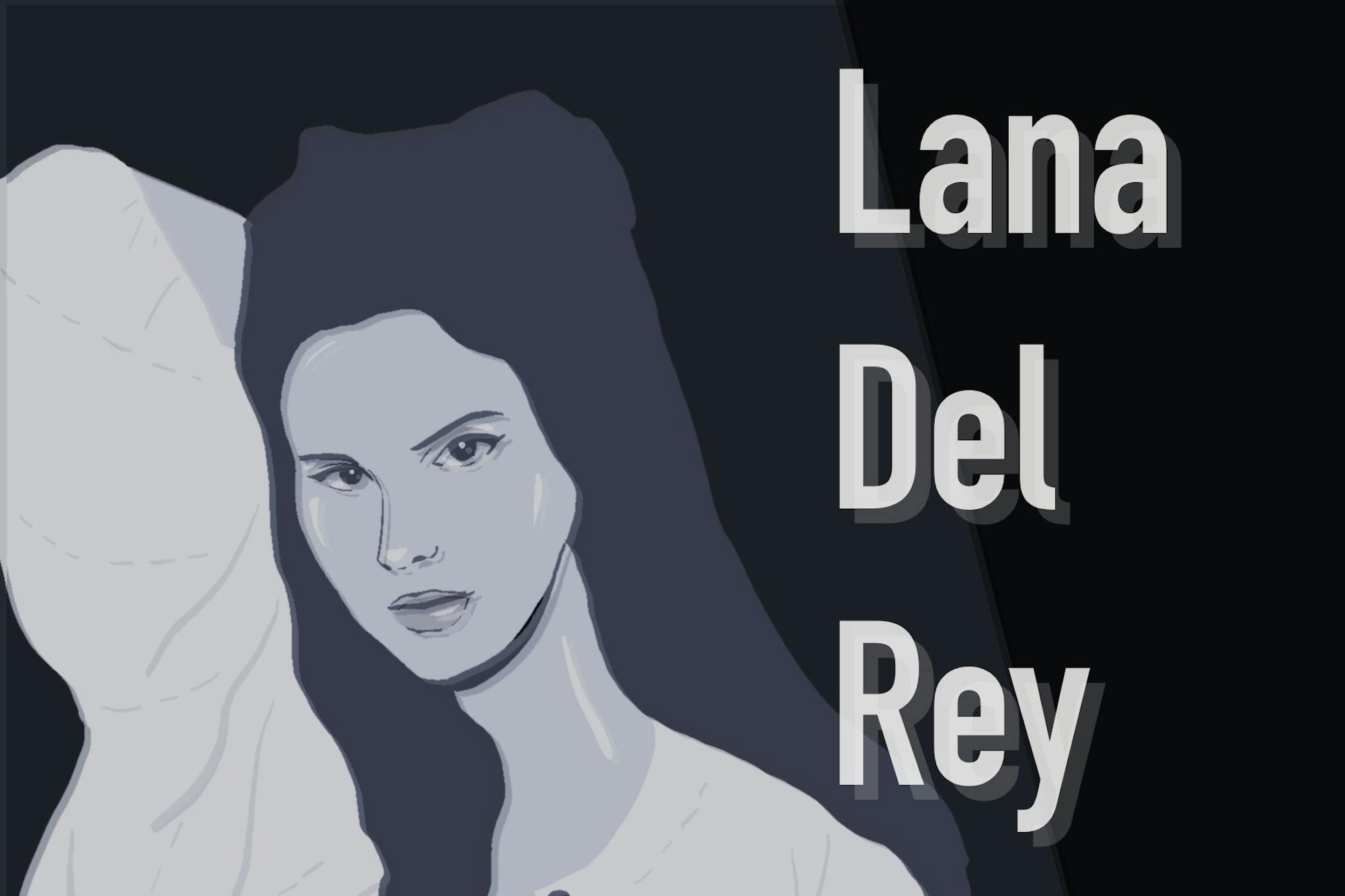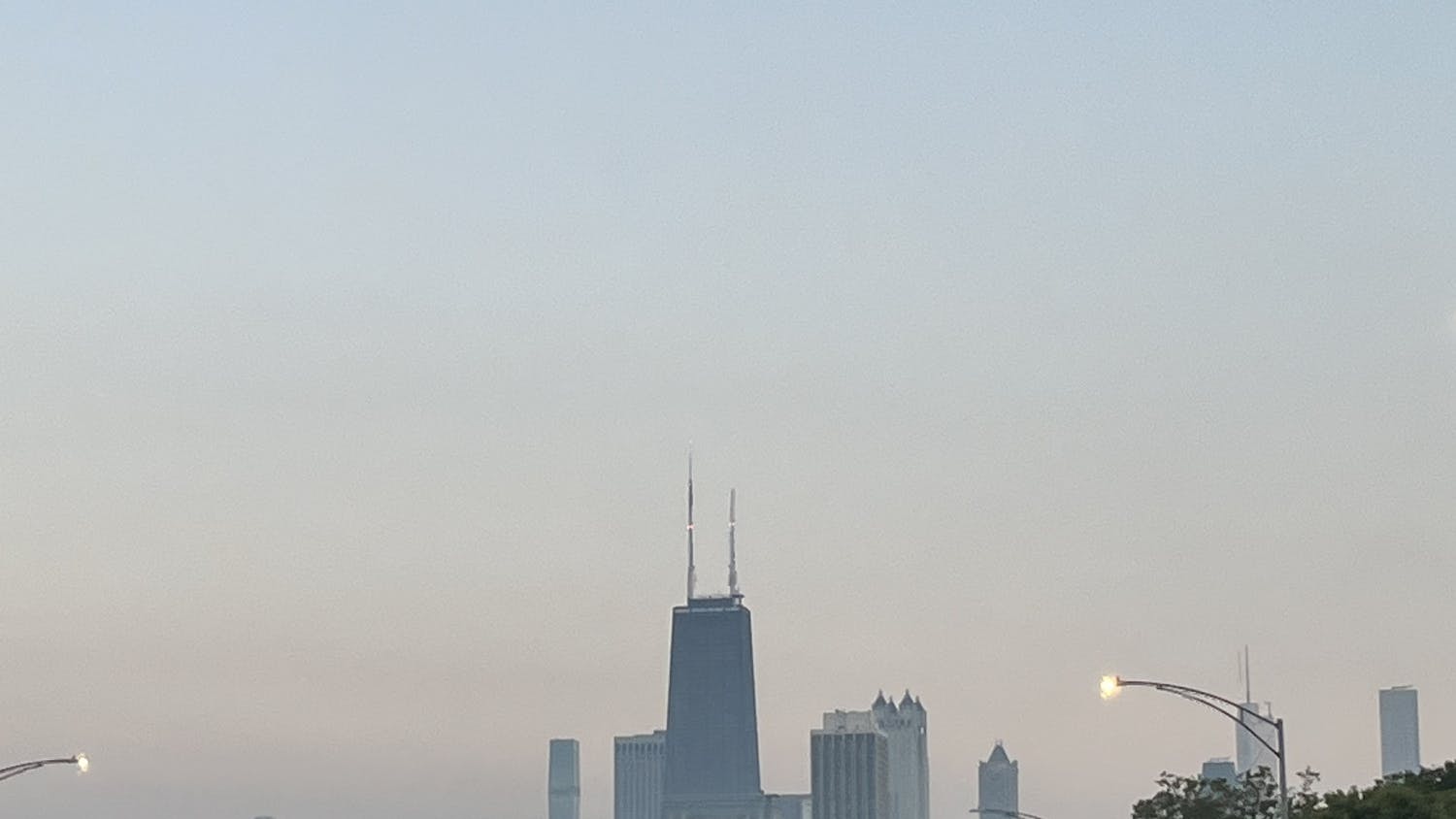Despite being in the top 0.005% of Lana Del Rey listeners on Spotify, it seems I’m always the last to listen to her latest album. I have a certain unflinching loyalty to her past albums, particularly “Born to Die” and “Norman Fucking Rockwell.” After all, how could anything surpass being sixteen and listening to “Video Games” for the first time? There’s something thrilling about discovering Lana Del Rey as a young teen — positioned at the crux of adolescent angst, pretending to relate to lyrics like “It’s you, it’s you, it’s all for you, everything I do,” despite never having been in love.
Writing this review forced me to overcome this futile stubbornness and listen to Lana Del Rey’s most recent 16-track album, “Did You Know That There’s a Tunnel Under Ocean Blvd.” Though the album begins with a gospel-inspired song titled the “The Grants,” the strongest song — and album’s title track — comes next in “Did you know that there’s a tunnel under Ocean Blvd.” This song embodies so much of what makes the entire album great, exploring all the quintessentially Lana themes. At the core of every Lana Del Rey song, including “Did you know that there’s a tunnel under Ocean Blvd,” is an aching between two worlds: real life and fantasy. For Lana, an ideal world is drenched in color — Florida-sunlight ginger or Caribbean blue. It’s dancing, Venice Beach, skinny-dipping, a devotion to another that extends beyond intimacy and yet still celebrates it. It’s daydreaming about driving with 70s rock singer Harry Nilsson: “Leanin’ in my back, whispering in my ear / Come on, baby, you can drive.”
The song digs deeper than just these fantasies. At one point, Lana sings: “There’s a girl who sings ‘Hotel California’… It’s because she’s in a world preserved –– only a few have found the door.” This reference to The Eagles’ classic describes the secret, “preserved” worlds we create in moments of deep vulnerability or hurt. A world where we are loved unconditionally, protected by the illusory shine of the imagination. But the boundaries between the fantastical and real worlds blur; throughout the album, Lana idealizes a partner and then brutally reduces him to his actual, often abusive self.
Lana so beautifully articulates that chasm between the world as it could be — as it so desperately should be — and how it really is. The soft aesthetics of her songs aren’t without meaning, but an intentional move in contrasting her bitter angst. Lana’s mournful voice rolls over pretty words. By the end of the song, she pleads “don’t forget me,” praying to find self-love through the validation of her partner. Throughout the album, Lana reclaims tragedies and redresses them as fantasy — further highlighting the relationship between her two worlds. In the 4th track “A&W,” Lana describes herself as an “American whore,” empowering herself through a typically derogatory label.
“A&W” begins with a spoken monologue, in which Lana says: “Look at the length of my hair, and my face, the shape of my body –– do you really think I give a damn what I do after years of just hearing them talking?” These demanding questions imbue the entire album, differing from her earlier albums which take a more narrative — rather than investigative — tone. In this album, Lana asks questions more than she provides answers as she confronts her complicated relationship with her own desire. She both craves and resents intimacy; most of all, she wants to feel wanted by another. Lana asks: Are desire and desperation inextricably connected?
Sonically, “A&W” is one of the album’s more experimental songs. The song abruptly shifts from Lana’s typical lullaby-esque singing to blunt proclamations — such as an exclamation that “This is the experience of bein’ an American whore”— delivered with synthetic beats. These transitions are not smooth, but surprising. The roughly-delivered sonic evolution of the entire album, evolving from soft to explosive songs, echoes Lana’s thematic obsessions. The songs waver in perfect harmony, paralleling Lana’s own grappling with seemingly-incongruous versions of herself. The 15th track “Peppers,” which features rapper Tommy Genesis, has a similarly unique sound, with an effect manipulating Lana’s voice during the chorus.
In many ways, “Did you know that there’s a tunnel under Ocean Blvd” represents new territory for Lana Del Rey. Rather than taking a backseat to Lana’s vocal and lyrical prowess, production fuels this new album. The album features production by Lana herself, Mike Hermosa, Jack Antonoff, Drew Erickson, Zach Dawes and Benji, and also includes an extensive list of collaborations including Jon Batiste, Bleachers and Father John Misty. The final track “Taco Truck x VB” even samples her 2018 song “Venice Bitch.” Throughout the entire album, electric beats thump beside piano chords.
In this album, Lana reaches for transcendence, hoping to be pulled, gloriously, even permanently, into the world she desires. Of course, Lana remains firmly with her feet upon the ground, all too aware of the pain her relationships cause herself and others. This is the central tragedy that ripples beneath the album. Lana perfectly captures individual moments of reckoning: looking for salvation in the very place we are trying to escape, trying to be made whole by those who only see parts of us.
Whether in this album or another, I always draw one lesson from Lana Del Rey’s songs: We can always incorporate versions of our own secret, idealized world into the real one, even if ultimately futile. In “Did you know that there’s a tunnel under Ocean Blvd,” Lana reminds me to choose risk over complacency. To embrace passion and refuse apathy. In the end, Lana Del Rey teaches me how to feel alive again — despite, or perhaps because of, the difficulties that provide dimension to this existence.
Rating: ★★★★★




